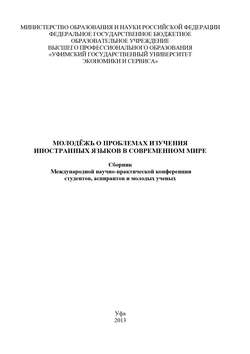Читать книгу Молодежь о проблемах изучения иностранных языков в современном мире - Коллектив авторов - Страница 2
ECONOMIC PROBLEMS OF THE EUROPEAN UNION: THE FEATURES OF HARMONIZATION AND UNIFICATION OF THE TAX SYSTEMS OF THE EUROPEAN UNION COUNTRIES
ОглавлениеУДК 336.221.4:061.1EC=111
ANISIMOVA V.
Ufa State University of Economics and Service (Ufa)
Development of the world economy causes the output of the productive forces and production factors beyond the nation-state. There is a lot of freedom for migration of all elements of economic activity: capital, labor, and finance. With the globalization of today's economy and the development of integration processes the harmonization of tax systems becomes a first priority problem.
The harmonization of tax systems is the systematization and standardization of tax systems and tax policies of the countries of the international community. It is especially important during the world financial crisis [1].
The most obvious manifestation of internationalization and the growing interdependence of the economies of the states is the economic integration within the European Union. Harmonization and unification of the tax systems of the countries – members of the European Union has become a powerful tool to ensure the integration process within the European Union. According to the Treaty establishing the European Union, which entered into force in 1958, sales tax (VAT) and other indirect taxes are subjects to unification. Within the European Union, the value added tax has become an important tool in the fight for markets against other countries, particularly the United States [2].
Tax harmonization suggests creating areas with a unitary tax system. At the same time, all countries should always adhere to the following basic principles developed by the Member States of the European Union:
The tax policy of the state is to ensure freedom of promotion of goods and people;
The national tax policy should not be in conflict with the tax policies of the other countries;
Tax policy should prevent double taxation.
The tax harmonization in the European Union has set itself such purposes as:
The abolition of the tax limits in order to ensure equal competitive conditions for businesses;
The integration and unification of the European Union internal market as the main engine of integration processes in the region;
Bringing the tax systems to conformity [3].
The experience of the European Union member states showed that the system of indirect taxes is more a subject to harmonization, as they have the greatest impact on mutual trade, pricing goods, and account for a large share of tax revenues in the budgets of all European Union states. It should be noted that in the development of mutual trade, the procedure for collecting VAT is of considerable importance. Currently, all countries of the European Union have turned into a «country of destination», which provides a zero rate of VAT on exports of goods (works and services) and the VAT refund from the budget on the resources used for exported goods. The experience shows that some defects made in the tax laws on VAT indicate the presence of double taxation. The fact is that neither the Agreement nor the national legislation of the countries clearly define the concept of export of services and activities. The result is a situation where the work and services sold by a non-resident are taxed both in the country of origin and the country of destination. To eliminate this negative practice, it is necessary to develop a single list of exported and imported works and services, as well as a uniform tax system. One of the important problems of overcoming obstacles appeared during the process of harmonization of tax systems in the European Union is to harmonize the profit tax systems [2].
Currently, all countries of the European Union are in the process of reforming the tax laws. The practice shows that the tax legislation is developing in the direction of harmonization, as only in these conditions it is possible to allow equal competitive conditions and free flow of capital, goods, services, labor.
References
1. European Problems// p. 2-3. Source: http://www.grin.com/en/ebook/118279/european-problems-challenges-of-the-european-union
2. Дивиденко Я.А. Особенности процессов гармонизации и унификации налоговых систем стран Евросоюза. стр 4-5.
3. Wikipedia// Harmonization of law. Source: http://en.wikipedia.org/wiki/Harmonisation_of_law
